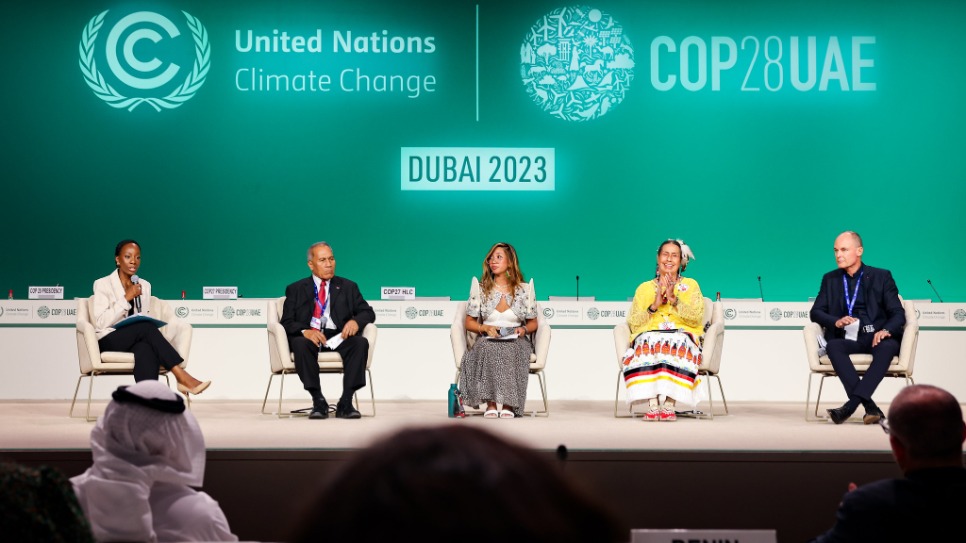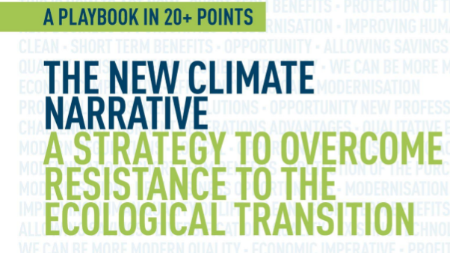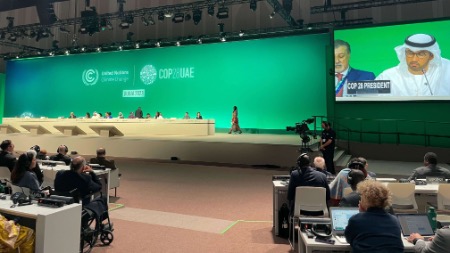Opinion
Is this a Micro or Macro-COP ?

declaration acceptable to all parties. We can feel the finish line approaching in an atmosphere of huge, empty rooms, with negotiators isolating themselves in closed offices to try to reach an agreement, and the 100,000 or so participants starting to head home.
The world will only judge this COP on the way fossil fuels are treated, but the language that can bring all the countries of the world to a consensus has not yet been found. It is understandable that a commitment to reduce or even abandon oil and gas is very difficult for oil-producing countries. Why should they saw off the branch on which they are comfortably sitting? In this context, if supply cannot be reduced, let's redouble our efforts on the demand side to reduce consumption, by deploying renewable sources that have become much cheaper and the thousands of solutions that exist today to make our society more efficient and less energy intensive.
Whatever form the final sentence takes, what conclusions can we draw?
The conference got off to a strong start, evacuating the potentially poisonous issue of the "Loss & Damage" Fund on the very first day, a crucial point for the North-South justice that can and must be guaranteed by the ecological transition. This advance is more symbolic than anything else. With this fund, a sink has been put in place, but two questions remain: who will actually turn on the tap (the funding pledges amount to €700 million, which is anecdotal compared to the initial objectives), and where will the water flow to, i.e. what types of projects should be funded, and under what terms and conditions.
Throughout the two weeks, one announcement followed another, and it would take too long to list them all here: 63 countries committing to reduce their emissions from the refrigeration sector by at least 78% below 2022 levels by 2050; 130 countries committing to triple renewable energy capacity and double energy efficiency; 50 oil and gas companies committing to decarbonise their operations by 2050; and a total of $83 billion pledged by governments, businesses, investors and philanthropists for climate action. This is no mean feat.
As the negotiations continue, two points seem important to me.
Firstly, given the absence of strong conclusions on one hand and the proliferation of initiatives by small groups on the other, how can we fail to question international governance? Each country can scupper the ambitions of the others in its own interests. On an issue that is by definition global, the consensus required for COP decisions rhymes with the lowest common denominator, which is clearly inadequate given what is at stake.
Secondly, the extreme attention paid to the COPs and their conclusions has a perverse effect: it gives the impression that their final declarations are our only tool for taking climate action. But this could not be further from the truth! We need to understand that every minute of the year, everywhere on Earth, is an opportunity to reduce our environmental footprint, in particular by reducing the energy needed to run our world. Reducing the waste and inefficiency that plague our production processes not only does not depend on a strong agreement at the COP, but it also represents the economic opportunity of the century. All of this can be decided at a personal level, in the choice of street lighting, the administrative ease with which solar panels can be installed, the decision to enter into a circular economy, among many other examples.
But would the world be better off without the COPs? I don't think so.
While our planet is engaged in an existential race against time, what other event brings together, from every country, so many strata of society - politicians, the private sector of every size, activists, the media, NGOs? This ebullience gives rise to numerous partnerships, and decentralised action is, if not more important, at least an essential complement to centralised negotiations.
We must recognise that times are changing, and that climate action is no longer the monopoly of activists. The urgent need to act on climate change is combined with the economic opportunity represented by efficient resource management. The shift towards a qualitative economy is inexorable: a new economic and therefore societal model, based not on the quantity of production but on the quality of efficiency applied to our products, systems, and processes. Independently of the COPs, but in some ways thanks to them.
This article first appeared in La Tribune, EFE Verde and Forum
The world will only judge this COP on the way fossil fuels are treated, but the language that can bring all the countries of the world to a consensus has not yet been found. It is understandable that a commitment to reduce or even abandon oil and gas is very difficult for oil-producing countries. Why should they saw off the branch on which they are comfortably sitting? In this context, if supply cannot be reduced, let's redouble our efforts on the demand side to reduce consumption, by deploying renewable sources that have become much cheaper and the thousands of solutions that exist today to make our society more efficient and less energy intensive.
Whatever form the final sentence takes, what conclusions can we draw?
The conference got off to a strong start, evacuating the potentially poisonous issue of the "Loss & Damage" Fund on the very first day, a crucial point for the North-South justice that can and must be guaranteed by the ecological transition. This advance is more symbolic than anything else. With this fund, a sink has been put in place, but two questions remain: who will actually turn on the tap (the funding pledges amount to €700 million, which is anecdotal compared to the initial objectives), and where will the water flow to, i.e. what types of projects should be funded, and under what terms and conditions.
Throughout the two weeks, one announcement followed another, and it would take too long to list them all here: 63 countries committing to reduce their emissions from the refrigeration sector by at least 78% below 2022 levels by 2050; 130 countries committing to triple renewable energy capacity and double energy efficiency; 50 oil and gas companies committing to decarbonise their operations by 2050; and a total of $83 billion pledged by governments, businesses, investors and philanthropists for climate action. This is no mean feat.
As the negotiations continue, two points seem important to me.
Firstly, given the absence of strong conclusions on one hand and the proliferation of initiatives by small groups on the other, how can we fail to question international governance? Each country can scupper the ambitions of the others in its own interests. On an issue that is by definition global, the consensus required for COP decisions rhymes with the lowest common denominator, which is clearly inadequate given what is at stake.
Secondly, the extreme attention paid to the COPs and their conclusions has a perverse effect: it gives the impression that their final declarations are our only tool for taking climate action. But this could not be further from the truth! We need to understand that every minute of the year, everywhere on Earth, is an opportunity to reduce our environmental footprint, in particular by reducing the energy needed to run our world. Reducing the waste and inefficiency that plague our production processes not only does not depend on a strong agreement at the COP, but it also represents the economic opportunity of the century. All of this can be decided at a personal level, in the choice of street lighting, the administrative ease with which solar panels can be installed, the decision to enter into a circular economy, among many other examples.
But would the world be better off without the COPs? I don't think so.
While our planet is engaged in an existential race against time, what other event brings together, from every country, so many strata of society - politicians, the private sector of every size, activists, the media, NGOs? This ebullience gives rise to numerous partnerships, and decentralised action is, if not more important, at least an essential complement to centralised negotiations.
We must recognise that times are changing, and that climate action is no longer the monopoly of activists. The urgent need to act on climate change is combined with the economic opportunity represented by efficient resource management. The shift towards a qualitative economy is inexorable: a new economic and therefore societal model, based not on the quantity of production but on the quality of efficiency applied to our products, systems, and processes. Independently of the COPs, but in some ways thanks to them.
This article first appeared in La Tribune, EFE Verde and Forum
Related news



